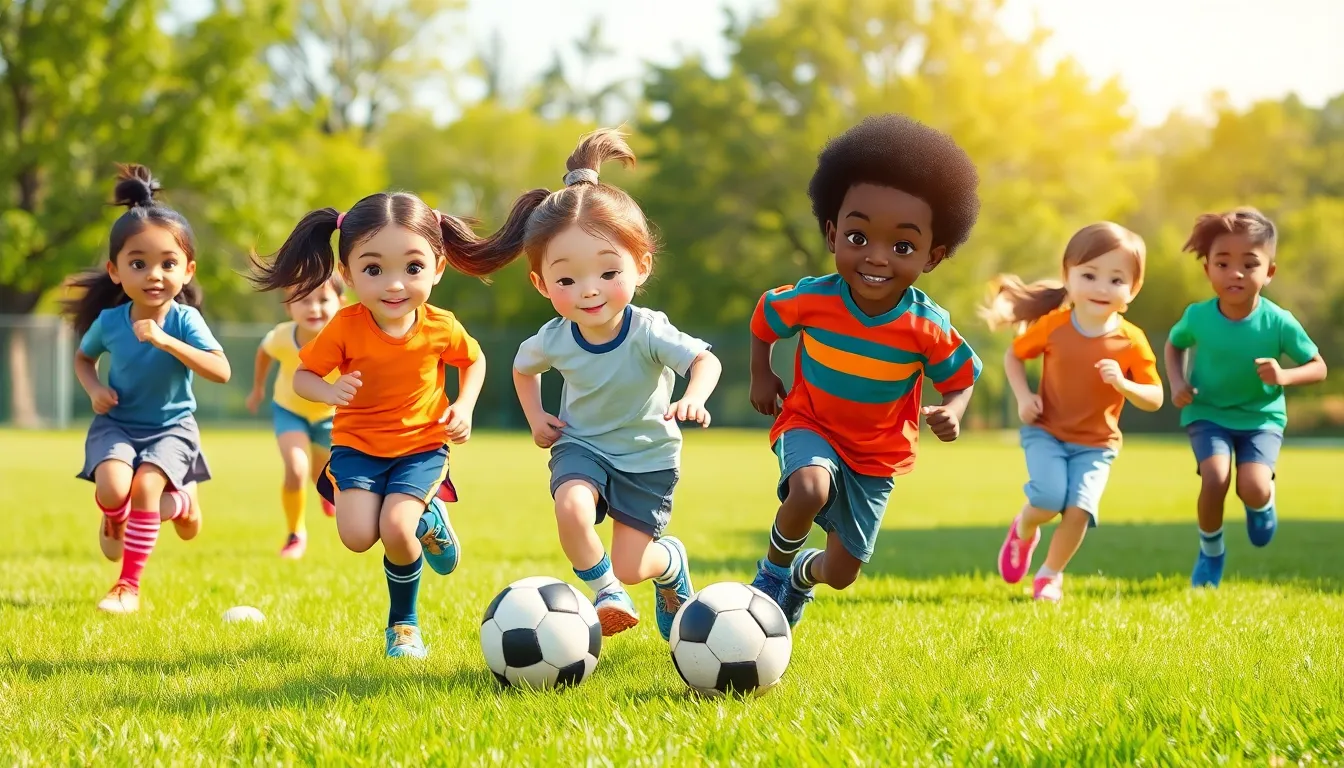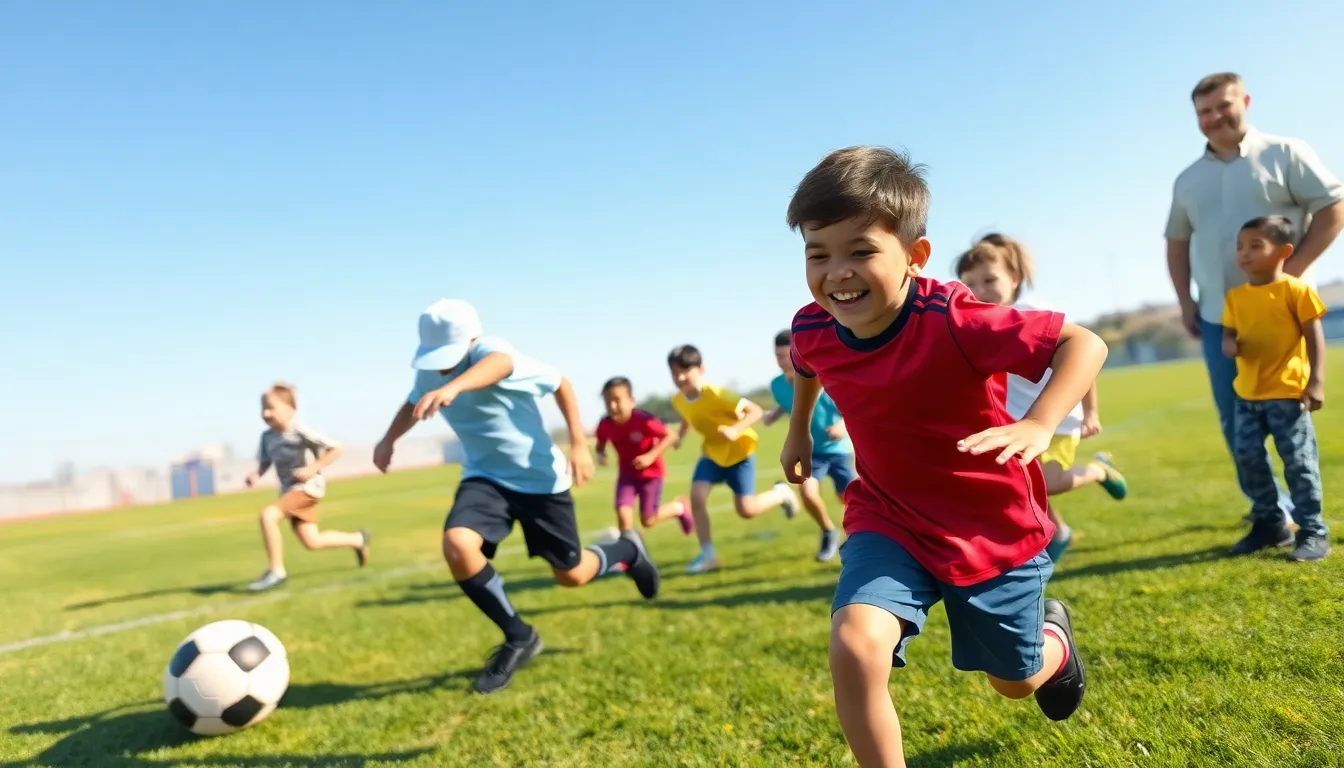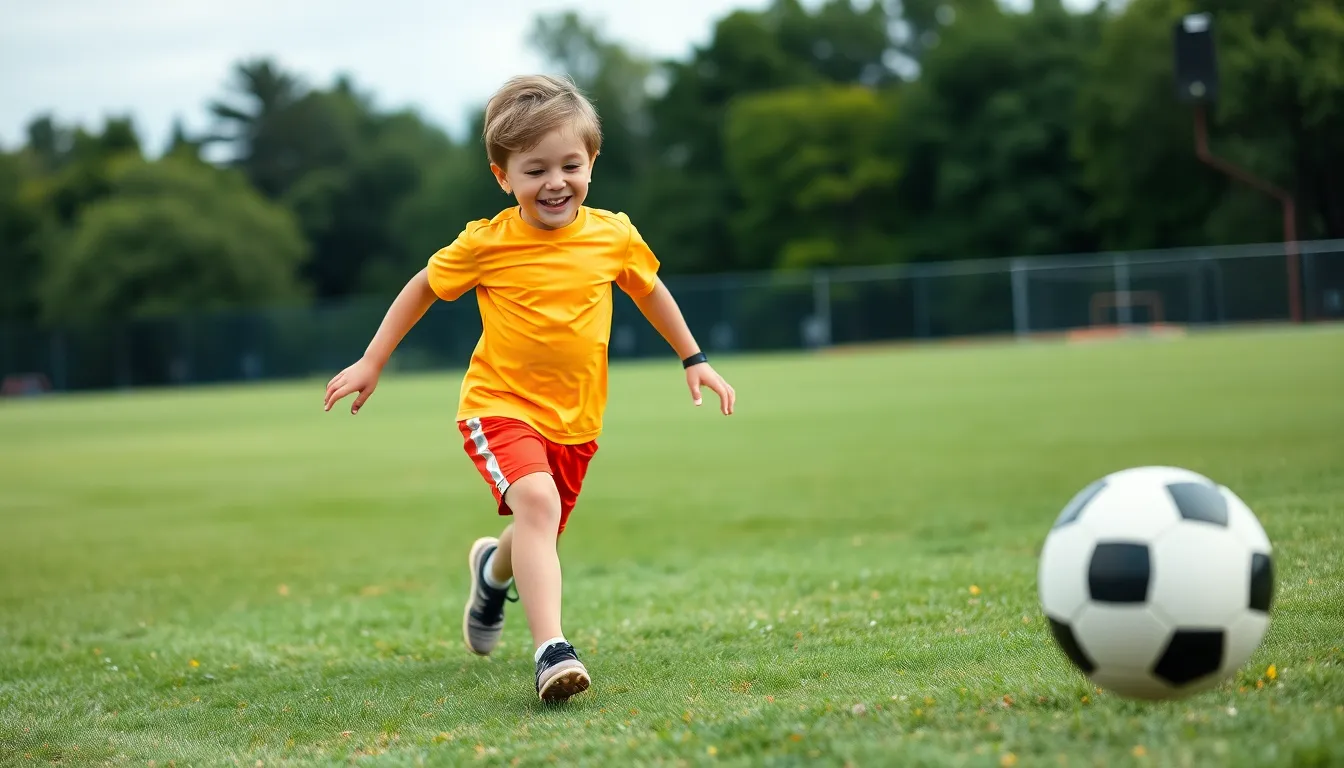Finding the right activities for kids with ADHD can feel like searching for a needle in a haystack—if that haystack were made of energy drinks and bouncing balls. But fear not! Sports can be a game-changer, offering not just physical activity but also a chance to channel that boundless energy into something productive.
Table of Contents
ToggleUnderstanding ADHD in Kids
Attention-Deficit/Hyperactivity Disorder (ADHD) significantly affects children, influencing their behavior, focus, and daily routines. Understanding its features is essential for finding effective activities.
Symptoms and Characteristics
ADHD manifests through various symptoms. Inattention often leads to careless mistakes in schoolwork or difficulty following instructions. Hyperactivity can cause excessive movement, resulting in difficulty sitting still in classroom settings. Impulsivity affects decision-making and can lead to hasty actions without considering consequences. Many kids with ADHD may also struggle with time management or organizing tasks, making daily activities challenging. Recognizing these characteristics helps caregivers tailor approaches that enhance engagement.
Impact on Daily Activities
Daily activities become complex when living with ADHD. School performance may suffer due to inconsistent attention and difficulty concentrating on lessons. Social interactions can become strained as impulsive behavior disrupts group dynamics or leads to misunderstandings. Routine tasks, such as chores and homework, might require additional support and supervision, as focus can easily drift. Physical activities, including sports, provide opportunities for self-regulation and improvement in discipline, vital for these children. Identifying these impacts supports the search for suitable sports and activities.
Benefits of Sports for ADHD Kids

Engaging in sports offers numerous benefits for children with ADHD. These advantages span physical health and emotional development, significantly enhancing their quality of life.
Physical Health Improvements
Regular participation in sports leads to enhanced cardiovascular fitness. Improved coordination and balance emerge from various physical skills required in sports. Lower risks of obesity and related conditions become evident, as children burn calories and develop healthier habits. Daily physical activity fosters stronger muscles and bones. Additionally, consistent exercise boosts energy levels, helping kids manage their excess energy effectively.
Emotional and Social Development
Sports cultivate valuable social skills in children with ADHD. They provide opportunities for teamwork and cooperation, essential for positive peer interactions. Experiencing wins and losses contributes to building resilience. Enhanced self-esteem often results, as children gain confidence in their abilities. Sports also offer a constructive outlet for emotions like frustration or excitement, improving emotional regulation. Participating in organized athletics fosters a sense of belonging, helping children thrive in social settings.
Types of Sports for ADHD Kids
Selecting the right sports for children with ADHD significantly enhances engagement and offers structured routines. Various options exist, each catering to different preferences and needs.
Individual Sports
Individual sports provide personalized pacing and can reduce performance anxiety. Activities like swimming, martial arts, or tennis promote self-discipline and focus. These sports allow children to set personal goals, fostering a sense of accomplishment. Parents often notice improved concentration during practices and competitions. Regular participation not only improves physical fitness but also enhances emotional resilience.
Team Sports
Team sports encourage social interaction and collaboration among peers. Popular choices include soccer, basketball, and baseball, where teamwork is essential. These sports help children develop communication skills and build friendships. The structured environment of team practices and games creates a sense of belonging. Participation in team sports also teaches strategy and cooperation, skills beneficial both on and off the field.
Choosing the Right Sport
Selecting the right sport for children with ADHD involves careful consideration of their interests and abilities. Understanding these factors significantly enhances engagement and enjoyment in physical activities.
Assessing Interests and Skills
Evaluating a child’s interests helps identify suitable sports. Observing which activities spark excitement encourages enthusiasm. Particular skills also play a role; for instance, some children may excel in sports that involve coordination, like swimming or gymnastics. Others may prefer the strategic aspects of team sports, such as soccer or baseball. Tailoring sports to align with a child’s strengths fosters a sense of achievement. Parents and coaches should communicate openly with children to gauge their preferences, ensuring they feel empowered in their choices.
Importance of Inclusivity
Inclusivity remains a crucial aspect when choosing sports for children with ADHD. Creating an environment where all children feel welcome promotes participation. Sports programs that emphasize teamwork and cooperation help develop social skills. Accessible options provide opportunities for children of varying abilities to engage together. Fostering a supportive atmosphere boosts self-esteem and reduces performance anxiety. Coaches trained in ADHD-specific strategies can make adaptations for individual needs, ensuring every child benefits from participation in the sport of their choice.
Encouraging Participation
Encouraging children with ADHD to participate in sports involves thoughtful strategies. It’s beneficial to start with setting realistic goals tailored to each child’s needs. Breaking down larger objectives into smaller, achievable milestones allows for gradual progress. Fostering a sense of accomplishment builds confidence and motivates continued effort. For instance, aiming for consistent practice rather than competitive wins enhances the experience. Celebrating small successes reinforces positive behaviors, making children more enthusiastic about their participation.
Creating a supportive environment emerges as another critical factor. Engaging with coaches who understand ADHD enhances the overall experience. Parents can play a significant role by attending practices and cheering during games, offering encouragement. Surrounding children with positive peers further nurtures a sense of belonging and community. Celebratory team events cultivate social connections and deepen friendships. Prioritizing inclusivity within sports programs ensures every child feels valued, allowing them to thrive in their athletic journey.
Sports offer a powerful avenue for children with ADHD to thrive both physically and emotionally. By engaging in the right activities, kids can channel their energy positively while developing essential skills. The benefits extend beyond fitness, fostering social connections and enhancing self-esteem.
Selecting sports that align with a child’s interests is crucial for maximizing enjoyment and participation. Parents and coaches play a vital role in creating an inclusive environment that supports every child’s unique needs. With the right guidance and encouragement, children with ADHD can not only excel in sports but also gain valuable life skills that will serve them well beyond the playing field.



